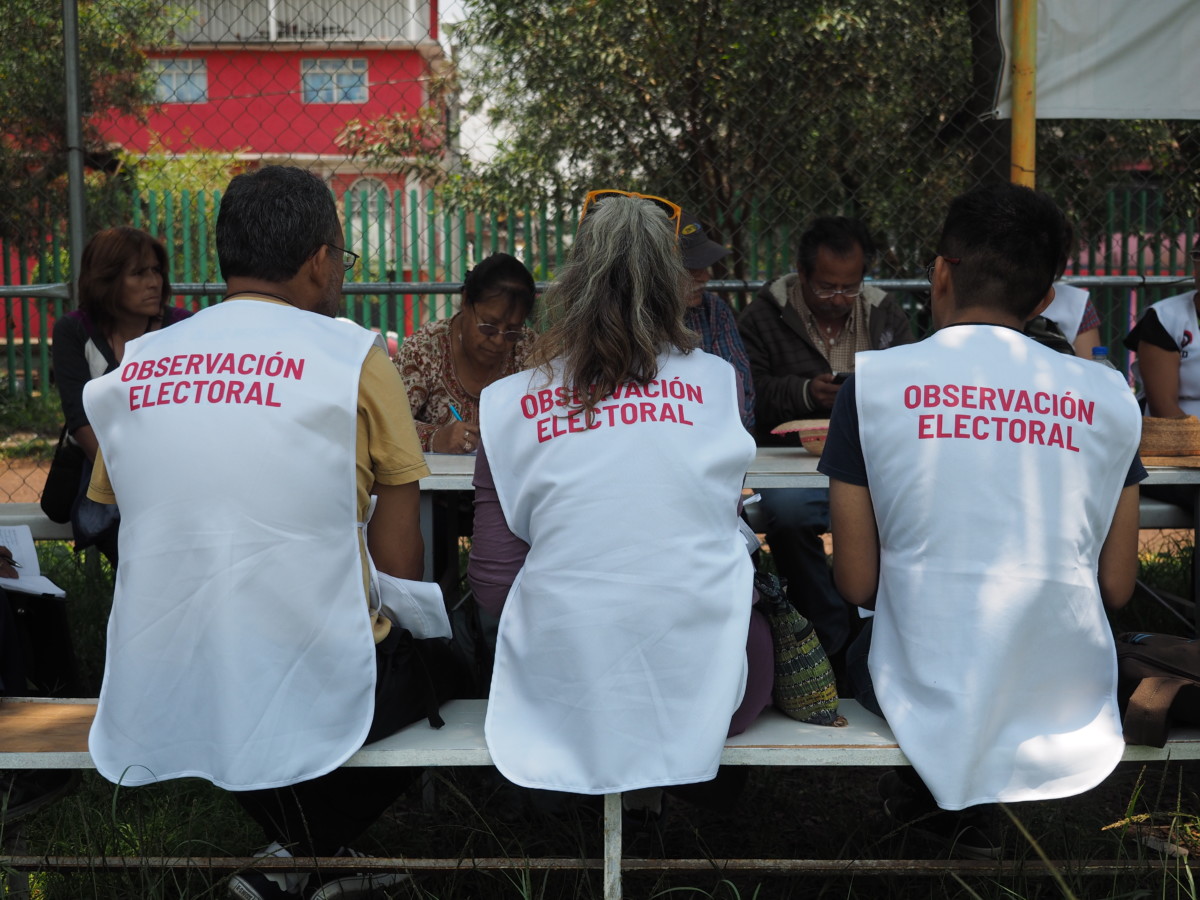Among the dusty side streets and alleys of Ecatepec, Mexico, in a polling station at a nondescript elementary school, Karla Montes came prepared.
“I brought my pen, and I brought my cellphone to take a photo of my vote, so that they don’t alter it,” she said. “These have been my precautions.”
The young woman was just one of thousands of people that took the matter of fraud and corruption — mainstay occurrences in Mexican politics for nearly the past century — head on. Seventy-one years of rule under the Institutional Revolutionary Party were followed by 18 years of pendulum-swinging between that and the opposition National Action Party. Both have gridlocked the country in extreme poverty, profound inequality and deep-seated violence — and people are fed up.
It’s for this reason that the July 1, 2018, elections in Mexico saw an unprecedented mobilization against fraud and corruption — resulting in what is being deemed as a historic win.
Andrés Manuel López Obrador, or “AMLO” as he’s known, of the National Regeneration Movement Party was named president — a landslide win he secured after running for the third time, this time under the bold rallying cry, “against the power mafia.” Having run in the past two elections in 2006 and 2012 that were marred by countless irregularities, Lopez Obrador’s victory signals a major shift in the country, propelled forward by all those who marshaled against the country’s long-standing order.
Making Democracy “Real”
On the front lines of this mobilization has been the Scholar and Citizen Network for Democracy, known by its Spanish acronym RUCD, a coalition group that had been monitoring, denouncing and working to prevent fraud long before Election Day in Mexico.
“Corruption is a central pillar of political control in Mexico … that exists in all institutions and spheres of society,” John Ackerman, a law professor at the Universidad Nacional Autónoma de México and a member of the RUCD, told Truthout. “And on the day of elections, it results in electoral fraud.”
That’s why the network, Ackerman explained, had helped organize 100 foreign and 100 national election observers in nearly every part of the country.

The aim has been to “make democracy real in Mexico,” Ackerman said, and to stamp out vote-buying, intimidation tactics, stealing of ballots, fatal violence and other irregularities that normally accompany elections in Mexico, this latest one not exempted.
For Areli Almendarez, a national observer from the State of Mexico, choosing to be a vigilante was an easy decision in the face of safeguarding democracy in the country.
“The popular vote must be respected,” she told Truthout.
Having witnessed fraud in the previous two elections, she explained that things have been radically different this time around.
“There is much more participation, there are more people, there is more information,” she said. “I have seen many more organizations denouncing fraud and corruption in this election.”
As the team travelled from one polling station to another on Election Day, and as the polls slowly wound down, they learned that despite attempts to rig the election, it ultimately served to deliver the will of the people: Preliminary results show that with 63 percent of voters turning out, 53 percent of Mexican citizens voted for Lopez Obrador — a count far surpassing both National Action Party and Institutional Revolutionary Party candidates, Ricardo Anaya and José Antonio Meade, respectively.

The People Want Change
At the victory rally later that night, thousands flocked to the Constitution Plaza, or El Zócalo, in Mexico City, with one word on the tip of their tongues: el cambio, or change.
“Mexico requires an urgent change,” Asunción Deciga Tenorio, a woman attending the rally with her family, told Truthout. “Andrés Manuel López Obrador is the hope that all Mexicans need.”
In the face of impunity against corruption and extreme poverty, Tenorio relayed, “radical change” might be possible with the newly elected president.
For Rafael Trujillo, a young student, voting for Lopez Labrador was “the only way to realize change.” He went on, in Spanish, saying Mexicans “want security and we want to live with dignity.”
The crux of Lopez Obrador’s fight against corruption is grounded in his proposal to create a “moral constitution.” Promising to bring together the elderly, Indigenous communities, teachers, parents, mothers, young people, writers, poets, women, entrepreneurs, “defenders of diversity and human rights” and others, the proposed document, the new president has declared, will make a “loving republic a reality.”
“‘Radical’ comes from the word ‘roots,'” Lopez Obrador has said. “And we’re going to pull this corrupt regime out by its roots.”
Still, the idea is ambiguous, with Lopez Obrador not having clarified its content beyond that it will serve as a road map to “reach true happiness.” In addition, drafting a new Constitution in Mexico requires the cooperation of the Congress of the Union and the local legislatures, support that the new leader will still have to drum up.
A New Era?
While fears had been mounting that the established Revolutionary and Action parties would not accept a National Regeneration Movement Party victory, predicted weeks before in countless polls, Lopez Obrador’s quick lead on Election Day was irrefutable: Hours before polls closed, both candidates had conceded.
For Ackerman, what had seemed an arduous task given the country’s history has resulted instead in a historic transformation of Mexican politics. “(Lopez Obrador) is an outsider candidate who’s been trying to win the presidency for many years,” he said.
With the popular vote truly having been respected for the first time in decades, Lopez Obrador’s victory could be the start of a new era in the country.
Press freedom is under attack
As Trump cracks down on political speech, independent media is increasingly necessary.
Truthout produces reporting you won’t see in the mainstream: journalism from the frontlines of global conflict, interviews with grassroots movement leaders, high-quality legal analysis and more.
Our work is possible thanks to reader support. Help Truthout catalyze change and social justice — make a tax-deductible monthly or one-time donation today.
